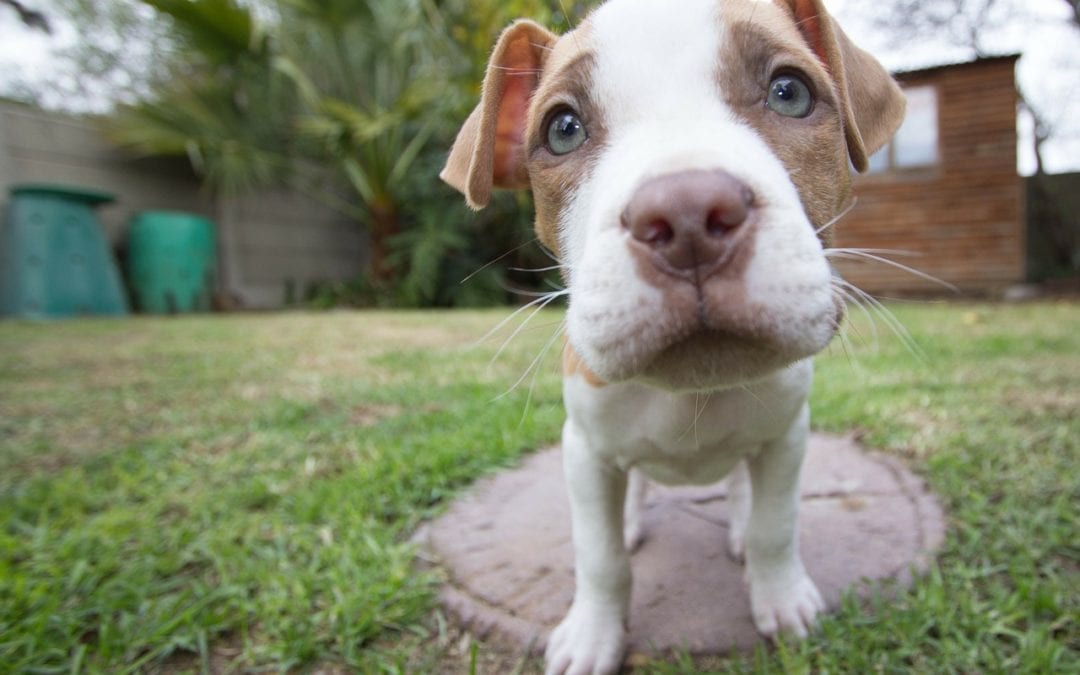Thanks to movies, TV, and the media, there are quite a few dog breeds that have gained a negative reputation in our society: the menacing “junkyard dog” Rottweiler, the killer pitbull, and the snarling Doberman Pinscher, to name a few.
At Union Lake Veterinary Hospital, we believe that education is critical when it comes to breaking the stereotypes surrounding misrepresented dog breeds. Besides changing the mindset of the general public, we also love to celebrate these breeds for their many wonderful qualities!
Celebrating Misunderstood Dog Breeds
While it’s true that some dog breeds are slightly more prone to aggression than others (studies indicate smaller dog breeds like Dachshunds and Chihuahuas tend to be slightly more aggressive), breed has very little relation to aggression. It’s simply not fair, or safe, to assume that one breed of dog will bite while another won’t. And studies have shown that breed-specific legislation isn’t effective. The truth is, any dog is capable of biting or aggression under the right circumstances, whether that be a German Shepherd, Labrador Retriever or Chihuahua.
Some of the most misunderstood and misrepresented dog breeds are:
- Pit Bull (American Staffordshire Terrier) – Despite being one of the most maligned dog breeds, the majority of Pit Bulls love people. Highly intelligent and eager to please, Pit Bulls make wonderful family dogs thanks to their gentle, loving, and loyal nature.
- German Shepherd – Behind that threatening exterior is a dog who was bred to protect livestock. With the right upbringing, German Shepherds are loyal, brave, and extremely faithful companions.
- Rottweiler – These massive dogs are truly gentle giants. Calm, courageous, confident, and loyal, the well-raised and properly socialized Rottweiler makes an excellent family friend and protector.
- Doberman Pinscher – When raised properly and provided with plenty of exercise and mental stimulation, dobermans are loyal, friendly, and affectionate family dogs and watchful protectors.
Unfortunately, these breeds owe their bad raps to humans. As larger dogs, these breeds have been bred for qualities such as protectiveness, strength, and endurance to protect humans. While larger dogs in general are less likely to exhibit aggressive behaviors, this past breed selection may result in a dog more prone to aggression in the right circumstances if not properly trained and socialized.
Responsible Pet Ownership Is Key
The first step toward changing public perspective of misunderstood breeds is responsible dog ownership. This includes the following:
- Research breeds before you adopt, and make sure that you are able to handle a larger dog, and are willing to provide the kind of environment your dog needs.
- Raise a “good citizen” by providing ample obedience training and socialization.
- Make efforts to set a good example of responsible pet ownership by keeping your dog in your yard or on a leash while in public.
- Make your dog’s health your top priority through proper nutrition, regular wellness exams, and plenty of exercise and mental stimulation.
- Help to educate others about breed discrimination issues through breed-specific advocacy groups.
If you’re considering adopting a breed that generally gets a bad rap, give us a call. We’d love to discuss the ins and outs of the breeds you may be considering and answer any questions you might have, including those pertaining to training and socialization.

